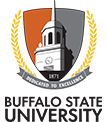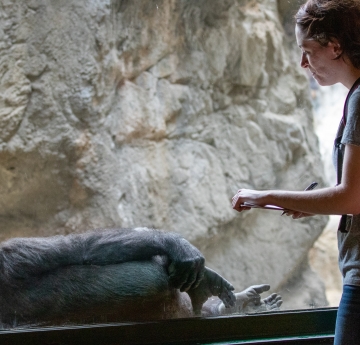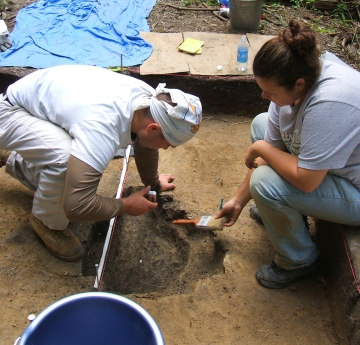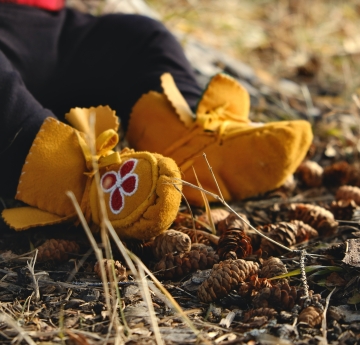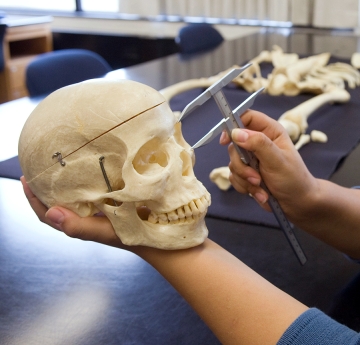Our Programs
High-Impact Practices and Experiential Learning
Anthropology faculty use high-impact practices (HIP) in their classes. High-impact practices, as defined by the Association of American Colleges and Universities (AAC&U), include inquiry-based learning, undergraduate research projects (completed over many steps from project proposal to formation of an annotated bibliography to final product), collaborative assignments, service learning, internships, and capstone courses. These practices feature frequent feedback from the professor and multiple interactions between students and the professor over the semester in each course in which they are used. Examples of HIP in Anthropology classes include collaborative in-class labs, weekly reflective journals, artifact/ethnographic object journals, and semester-long research projects. The AAC&U also includes Diversity/Global Learning as part of high-impact practices. Exploring difficult differences such as racial, ethnic, and gender inequality and the continuing struggles for human rights worldwide is the core of Anthropology as a discipline.
Students in the Anthropology major/minor must complete experiential learning courses, a capstone seminar, and an internship as part of their studies. Students in the interdisciplinary Indigenous Studies and Forensic Anthropology minors have the opportunity to complete courses in these categories in addition to coursework in other departments across campus.
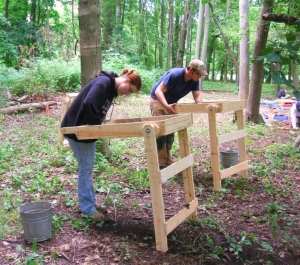
Beaver Island State Park
Archaeological Field School at Beaver Island State Park
ANT308 (Archaeological Methods)
Prerequisite: ANT100 or equivalent AND permission of instructor via application
Instructors: Dr. Lisa Marie Anselmi (Anthropology)
First meeting held in Classroom Building; all subsequent meetings at Beaver Island State Park or other field site location. Students are responsible for their own transportation.
The research focus is on rediscovering the multi-component Martin site and exploring the side boundaries and remains of the lithic manufacturing locality that is the Martin II site. Students will learn about the Indigenous occupations of Western New York, fieldwork methods including mapping and excavation, and laboratory procedures.
For more information and an application, contact Dr. Lisa Marie Anselmi at (716) 878-6520.
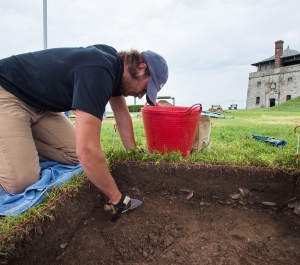
Old Fort Niagara
Archaeological Field School at Old Fort Niagara
ANT308 (Archaeological Methods)
Prerequisite: ANT100 or equivalent AND permission of instructor via application
Instructors: Dr. Susan Maguire (Anthropology)
First meeting held in Classroom Building; all subsequent meetings at Old Fort Niagara, Youngstown, N.Y. Students are responsible for their own transportation.
Research at the site to focus on trade between the French, the British, and the Native Americans during the mid-to-late eighteenth century. Students will learn how to map the site using a laser transit, how to establish excavation units, and how to excavate stratigraphically. All students will participate in excavation, documentation, and laboratory work.
For more information and an application, contact Dr. Susan Maguire at (716) 878-6599.
